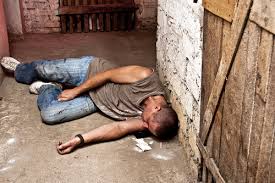Heroin Detox: (800) 315-2391 Heroin Rehabilitation: (888) 565-6401 Heroin Addiction Hotline: (800) 303-2482
Can You Recognize Symptoms of a Heroin Overdose?

The use of heroin has had a major impact in many regions throughout the U.S. Heroin isn't a drug associated with use in the inner cities like it was many years ago according to new research. Today heroin is commonly used among the middle class in their early twenties living in the suburbs and this is largely due to the widespread abuse of prescription painkillers.
The use of heroin has been increasing for some time now and sadly overdoses related to heroin, which are much too often fatal, have steadily risen as well. The number of Americans using heroin for the first time nearly doubled from 2006 to 2012 according to the National Institute on Drug Abuse (NIDA). The NIDA report shows 156,000 people in 2012 started using heroin compared to 90,000 first time users in 2006.
Heroin is very addictive and the risk of overdose is extremely high. First time users of heroin don't realize the risks they're taking because around 23% of people using the drug for the first time end up becoming addicted down the road.
Sadly heroin related overdoses are taking place at record speed and far too many have been fatal. Many heroin users suffering overdose are unable to receive medical help in time. Heroin overdoses are treatable and because the illicit drug is so commonly abused today, everyone needs to recognize the signs.
Signs of heroin overdose may include the following symptoms:
- Breathing problems-shallow, slow, difficult or breathing stops
- Coma
- Extremely tiny pupils possibly pinpoint in size
- Discoloration of the tongue
- Blood pressure low
- Pulse weakened
- Lips and nails bluish in color
- Dry mouth
- Seizures
- Confusion
- Disorientated
- Drowsiness
- Spasms
- Constipation
